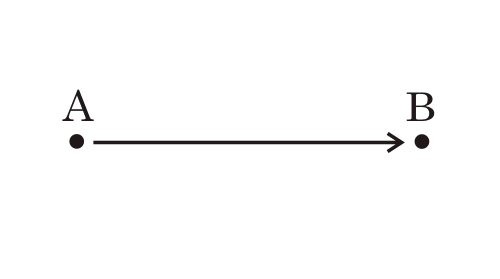|
LITR 4632: Literature of the Future  |
Student Midterms 2011: Sample Essay 2
|
 |
Heather Mills
24 June 2011
The New and Improved, Slightly Tweaked Flux Capacitor
When I first signed on to attend this course I immediately started thinking that this course would be about literature relevant to today and tomorrow or more of what kind of changes to expect over the next few years in the literary form. What I did not expect was a course on prophesy, science fiction and fantasy; however, this course proved to be much more interesting as well as thought provoking, to my profound relief, than anything I thought I could imagine. I have always enjoyed reading science fiction but I never actually considered other implications or explanations that these stories provoke. One such implication and question is what actually is the apocalypse and is it 100% the end? Does evolution bring about the apocalypse or is evolution the apocalypse? These particular questions bring about the idea of alternative paths and choices, but, all are overlapping narratives of the future.
In the book of “Revelations” the end of the world is sketched out over many a millennium; however, one very important statement was given at the beginning of the book that, “Blessed is he that readeth, and they that hear the words of this prophecy, and keep those things which are written therein” (Revelations 1:3). Not only is this book in the Bible just of scriptural reference but a warning of things to come that should be remembered and considered. The word prophecy can be used in juxtaposition with apocalypse in that as defined; an apocalypse is a revelation or revealing of a struggle between what is good and what is evil and the overall destruction of all that is evil, which is stated in details at the end of “Revelations”. But why give some kind of warning if there is no alternative outcome? This would be considered a very conflicting downside to an apocalyptic narrative.
In the book, Parable of the Sower, it tells a story of survival after what appears to be an apocalyptic event. What is described in the story could be an evolutionary process that has occurred and evolved over a short or not as long of a time frame as one first imagines. The apocalyptic event that devastated the planet was through drugs, severe climate issues as well as a breakdown in the democratic government of the U.S., issues not unlike the ones that plague our own society today. This particular novel describes a dystopian existence of a future set in a situation within a very fanatical, scary and overall crazy society, which is the complete opposite of a utopia. However, the Parable of the Sower is a very good example of the overlapping among narrative genres in that the story takes place after an apocalyptic event and the humans that have survived are evolving and creating changes to better their situations and live a more peaceful existence. The main character in Parable of the Sower, Lauren, wants a better existence and as written in chapter 2 she begins to compile knowledge of plants and basic survival skills in preparation to leave the neighborhood. This also represents the alternative choices and paths she has chosen to take rather than stay in her present situation. So, not only is the Parable of the Sower an apocalyptic novel but one that bears the mark of evolution and changes as well as the importance of the decisions one makes along the ever different and alternative paths he or she chooses.
Another good example of an alternative as well an evolutionary genre would be the novel by H.G. Wells, The Time Machine. This particular novel begins in what appears to be the Victorian era and the reader is immediately placed in a discussion and argument among colleagues as to the mathematical deductions of the possibility of time traveling. The time traveler, one chapter later, describes his travels and the interesting sights and knowledge that he procured while time traveling. That he stopped in time at a place where society had separated into a higher order of beings versus a lower and the issues of survival come into play are not unlike similar issues of yesterday and today. According to Paul Acevedo in his essay titled, “Myriad Possibilities”, “The Time Machine’s analysis of classism epitomizes the purpose of science fiction: to use imaginary elements and situations in order to shed light on issues that we face today”.
The evolutionary changes in The Time Machine may serve as a warning to those who read it, in that although put in a different and all together fictional society the underlying idea and outcome may possibility occur without changes. Although The Time Machine does not appear apocalyptic in nature an apocalypse does occur as well as continues to occur between the Eloi and the Morlock. Evolution has caused an apocalyptic struggle between the both races that has resulted in a dystopian society. That the Elio, once of a higher class origin, have changed into fragile “childlike” beings and the Morlock have mutated into the “white ape” like beings enhances the evolutionary changes and the negative effects of those changes when not treated properly. This is further illuminated in the last two chapters of The Time Machine and the unsettling and terrifying descriptions of the earth and its inhabitants millions of years later. The time traveller states, “I cannot convey the sense of abominable desolation that hung over the world. The red eastern sky, the northward blackness, the salt Dead Sea, the stony beach crawling with these foul, slow-stirring monsters, the uniform poisonous-looking green of the lichenous plants, the thin air that hurts one’s lungs; all contributed to an appalling effect”.
A downside to evolution is that
changes eventually occur but whether they are subtle changes or catastrophic is
still a choice among those who will listen.
This is also shown in the short story, “Better Be
Ready ‘Bout Half Past Eight” when Byron slowly evolves into a more liberal
thinker when faced with the earth shattering knowledge that his best friend is
altering his current gender into that of a woman.
A person has choices in dealing with issues that are
in this case life-altering, but, which fork in that path a person chooses
whether they know it or not has a severe stamping on others and future decision
or ideas that they may make.
Almost like a chain reaction or net that starts with
one piece of rope that entwines together and branches off to form a very large
snare.
Another example of this is also suggested in the short
story, “Garden of Forking Paths” but with a difference that another alternative
paradox in time is also possible.
Meaning that there are many other possibilities not
only in the future but in the present as well as the current and these “forks”
can be occurring simultaneously with different outcomes along with different
relations between the cause and effect.
In the short story, “Garden of Forking Paths” Yu
Tsun sees the multiple forking paths and ponders, “It
seemed to me that the humid garden that surrounded the house was infinitely
saturated with invisible persons. Those persons were Albert and I, secret, busy
and multiform in other dimensions of time”.
Another example of these “other dimensions of time”
is described in another short story titled, “The
Gernsback Continuum".
In this particular radical story the narrator gives
an unusual description of similar visions to that of Yu Tsun and states, “but
the mind had its own ideas, and Kihn's opinion of what I was already thinking of
as my "sighting" rattled endlessly through my head in a tight, lopsided orbit.
Semiotic ghosts”.
These “sightings” can be interpreted as ideas or
suggested paths one may take, however, they are ever present and continuously
happening.
It is hard
not to dismiss the belief or idea of multi-dimensional states of being
especially when placed alongside evolution and the apocalypse.
Evolution is based on scientific observations and
experimentation and the apocalypse has been prophesized to us since we could
remember.
It is easier to dismiss something not usually talked about
or examined.
But even the apocalypse can be argued in many different
ways and in one constant question as to when actually it is to occur?
If anything read about in these stories that should
be considered important it is the ever underlying reminder to think outside of
the box.
To quit believing that there is nothing else to discover or
understand is to quit existing.
 |
 |
 |